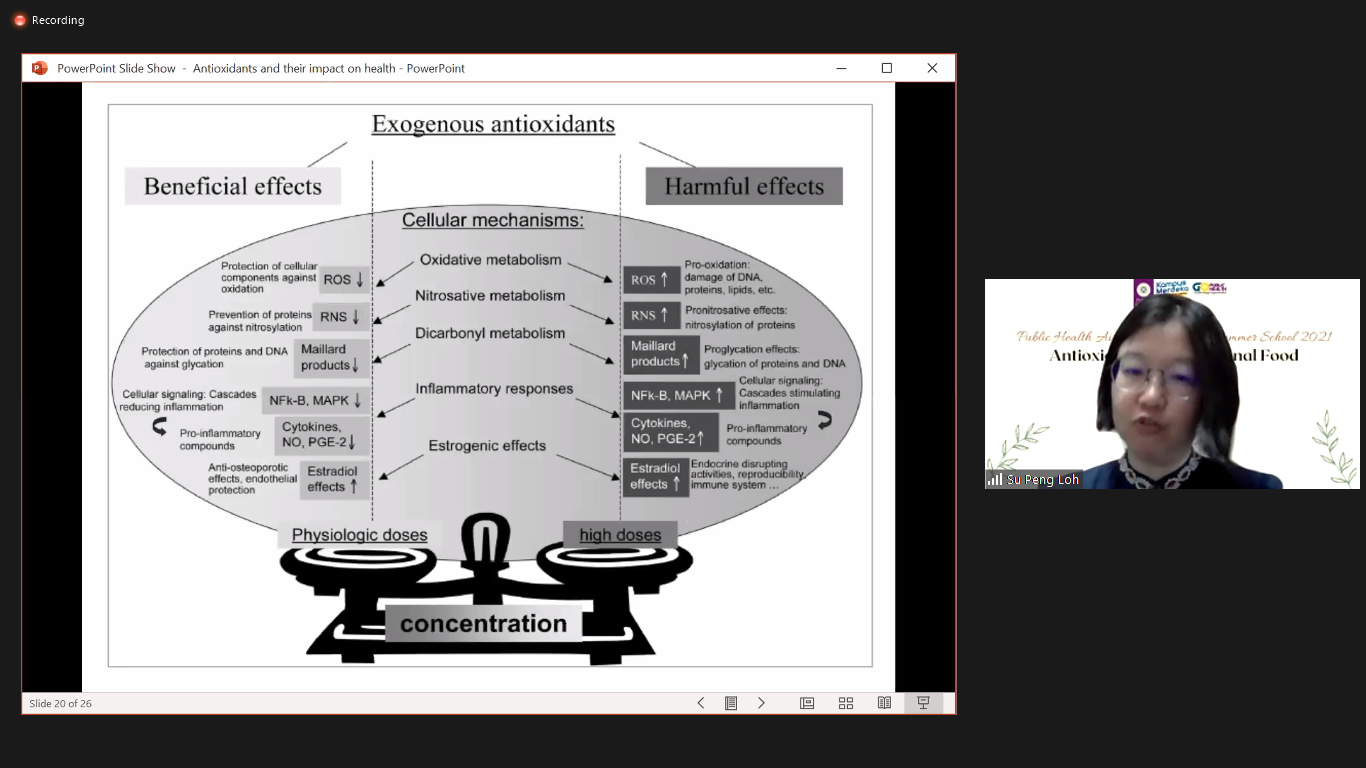UNAIR NEWS – Polyphenols are natural compounds in plants that have many health benefits. If consumed, this substance acts as an antioxidant that can reduce the morbidity of various serious diseases such as cancer, diabetes, infections, to hypertension.
Those benefits of polyphenols as an antioxidant were discussed at the Public Health Airlangga University Summer School 2021 on Tuesday, July 27, 2021. In the event, a professor of Universiti Putra Malaysia, Prof. Loh Su Peng, said that increasing body antioxidants can reduce the effects of chronic disease.
A higher intake of antioxidants in our diet, she continued, could potentially provide better defense and protection against oxidative stress. It is a condition where the number of free radicals in the body exceeds the body’s capacity to neutralize them. “This is why we must increase the levels of antioxidants in the body, both from food and supplements,” she said.
Prof. Su Peng also said that a large number of vegetables and fruits generally contain polyphenolic compounds. Some with high-level polyphenols are chocolate, berries, apples, seeds, nuts, soybeans, black tea, and green tea.
The benefits of polyphenols also vary, as summarized by UNAIR News Team as follows:
Reducing the risk of coronary heart disease
Prof. Su Peng explained that polyphenols can basically inhibit the oxidation of bad cholesterol (LDL). This type of oxidation is thought to be the key to fat buildup within the artery walls.
“Includes providing anti-inflammatory, antioxidant, and antiplatelet effects; increasing good cholesterol; and improving endothelial function,” she said.
Acting as an anticancer
Some chemo-preventive effects of polyphenols have been identified. They include estrogenic/anti-estrogenic activity, anti-proliferation, induction of cell cycle arrest or apoptosis, and prevention of oxidation. They also show induction of detoxification enzymes, immune system regulation, and anti-inflammatory activity.
“In several studies, mostly shown in cell culture models, these antioxidants are able to kill cancer cells,” she added.
Inhibiting aging
Correct consumption of food high in antioxidants effectively reduces the effects of aging and extending life span. Furthermore, continued Prof. Su Peng, antioxidants are useful in repairing the negative effects of aging on the brain’s nervous system.
Unfortunately, this research has only been proven in experimental animals. In aged mice, antioxidants are effective in reversing age-related deficits in brain and behavioral function. “It has only been proven in experimental animals. I haven’t found any research that shows its impact on humans,” said Prof. Su Peng.
Acting as an anti-inflammatory and immune booster
She explained that antioxidants can neutralize free radicals and increase the production of antioxidant enzymes, especially in Zinc, Vitamin C, Curcuma, and Selenium.
“The impact can provide a direct antiviral effect, increase immunity, suppress inflammation, and anti-SARS-CoV-2,” she said. (*)
Author: Erika Eight Novanty
Editor : Binti Q. Masruroh (YA/AP)





